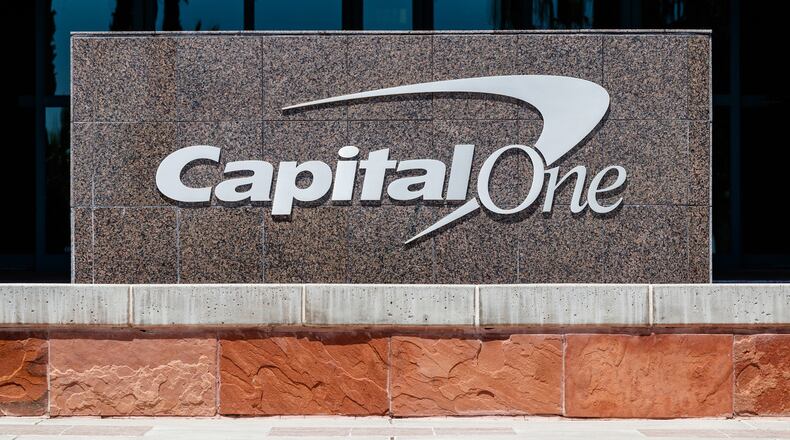Here’s what you need to know:
»BIZ BEAT: 8 new stores, restaurants opening at the Dayton Mall this year
1. Who’s affected?
Capital One will notify individuals through “a variety of channels” if they were impacted, according to a company statement.
But all Capital One customers should monitor their credit card accounts closely in the upcoming months to make sure there are no unauthorized purchases, the company said. More than 1 million people may have been impacted.
2. Am I at risk?
The FBI has arrested one individual in relation to the cyber hack, and Capital One said it is unlikely the information was used for fraud or disseminated by the individual. But investigations will continue, according to the statement.
Regardless of whether the information was distributed, customers should consider further protections because compromised information can sometimes take years to sort through illegal channels.
“Your Social Security number is your Social Security number. There’s no changing that,” Shawn Waldman, founder and CEO of Miamisburg-based Secure Cyber Defense previously told the Dayton Daily News. “Don’t let your guard down because that’s what they want you to do.”
»RELATED: New local Old Navy store sets opening date
3. Free credit monitoring
Capital One will offer free credit monitoring and identity protection to any customers and applicants directly affected. The company plans to spend between $100 million and $150 million this year on the breach, largely driven by notifying customers and the free credit monitoring service.
4. Other protective actions to take.
In addition to credit monitoring services, customers should consider setting up account notifications on all cards and bank accounts. Most credit companies and banks offer email and text alert options when money has been moved from an account.
If customers notice any unusual activity, they should call the number on the back of their credit card immediately.
5. It’s not over
Though the expected hacker is in custody with the FBI, several other scams could result for customers whether affected or not.
Capital One is warning customers about potential calls and phishing email scams requesting personal information, which may not actually be from Capital One.
»BIZ BEAT: Golden Nugget gives upate on restaurant sale
“We do not call customers asking for personal information and customers should be mindful of phishing emails and calls due to this incident….Phishing is an attempt to acquire personal information, sometimes to compromise online banking accounts by posing as a legitimate company in an electronic communication. These emails are not from Capital One,” a statement said.
Fraudulent calls and emails will often claim there’s a problem with your account, report suspicious activity, say you must confirm some personal information, include a fake invoice, wank you to click a link to make payment, demand payment immediately, say you’re eligible for a government refund or offer a coupon for free stuff.
To determine if an email or call is fraudulent slow down the conversation, check for spelling and grammar errors in emails and beware of urgent or threatening information in the subject line.
FIVE FAST READS
• Premier Health patient information may have been compromised
• Ross Dress for Less store opens area store
• Back-to-school shopping begins early as schools prepare for openings
• Dorothy Lane opening Killer Brownie manufacturing facility
About the Author
